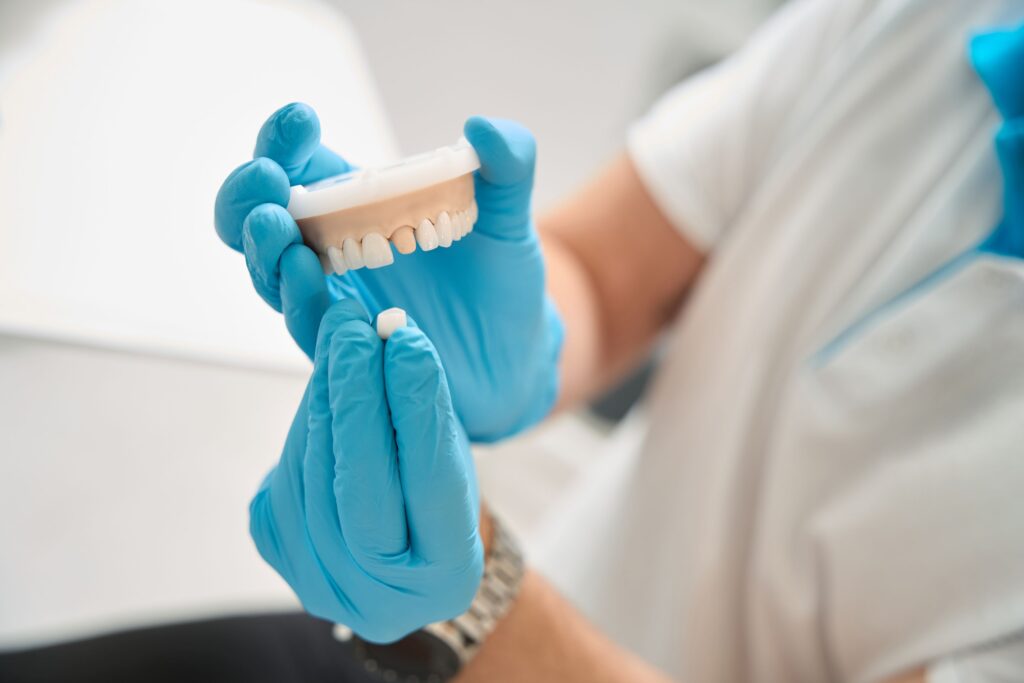
Many patients experience anxiety around dental appointments, especially if they’re undergoing a repair, like getting a dental crown. These tooth-shaped caps are used to protect damaged or decayed teeth from additional harm while allowing you to continue using them normally to preserve your smile.
While you might worry that restoring your injured tooth with a dental crown will hurt, that’s thankfully not usually the case. If you’ve been dreading your upcoming procedure, continue reading to learn more about why you can safely set your fears aside!
What Are Dental Crowns?
Typically, cavities, chips, and cracks can be treated with tooth-colored composite resin, which can be used to rebuild thinned or damaged enamel to repair the structure of your tooth. However, if your pearly white is more severely injured, a filling might not effectively repair it.
In such cases, your provider might recommend a dental crown. These tooth-shaped caps are typically made from resilient ceramic, customized to match your grin for seamless results. They’re often used to protect a harmed tooth, restore one that underwent a root canal, to cap dental implants, to anchor a dental bridge, or to improve a stained or broken tooth’s appearance.
What Happens During a Dental Crown Procedure?
First, your dentist will examine your tooth to confirm that a dental crown is the best treatment for your unique situation. They will likely also take X-rays and other images to verify that the damage has not extended beneath the surface of your gums. If they verify that you’re a good candidate for this procedure, they’ll continue by prepping your troublesome tooth.
Your dental team will begin by removing any injured or infected materials and sanitizing your tooth to ensure no bacteria remain. Then, they may need to remove a small amount of enamel so that your restoration can fit on top of it without seeming overly bulky. They’ll make impressions of your teeth, jaw, and bite alignment and send the information to a special dental lab to create your prosthetic.
Does Getting a Dental Crown Hurt?
Generally, this treatment isn’t considered painful. Still, you might develop some sensitivity once your enamel is thinned or associated aches after your crown is placed, as your mouth adjusts to its presence. These symptoms are generally mild to moderate, and taking over-the-counter medications like Tylenol or ibuprofen is typically safe to reduce soreness or swelling.
If you experience prolonged tenderness that lasts more than a couple of weeks or severe discomfort accompanied by fever, gum swelling, or a sharp sensation when you bite down, please contact your dentist to ensure your prosthetic fits as intended.
Meet the Author
Dr. Dhiren Ahir has 20 years of experience proudly helping people of all ages build and maintain their happiest, healthiest smiles. He began his education in Ahmedabad, India and graduated from the Government Dental College and Hospital with a Bachelor of Dental Surgery. Then, he moved to the United States and graduated with an advanced dental degree from the New York University College of Dentistry, before eventually settling in Texas. Today, he offers a comprehensive menu of services at one convenient location to meet all your family’s needs, including placing dental crowns. You can request an appointment on the website or call (940) 514-0333.






